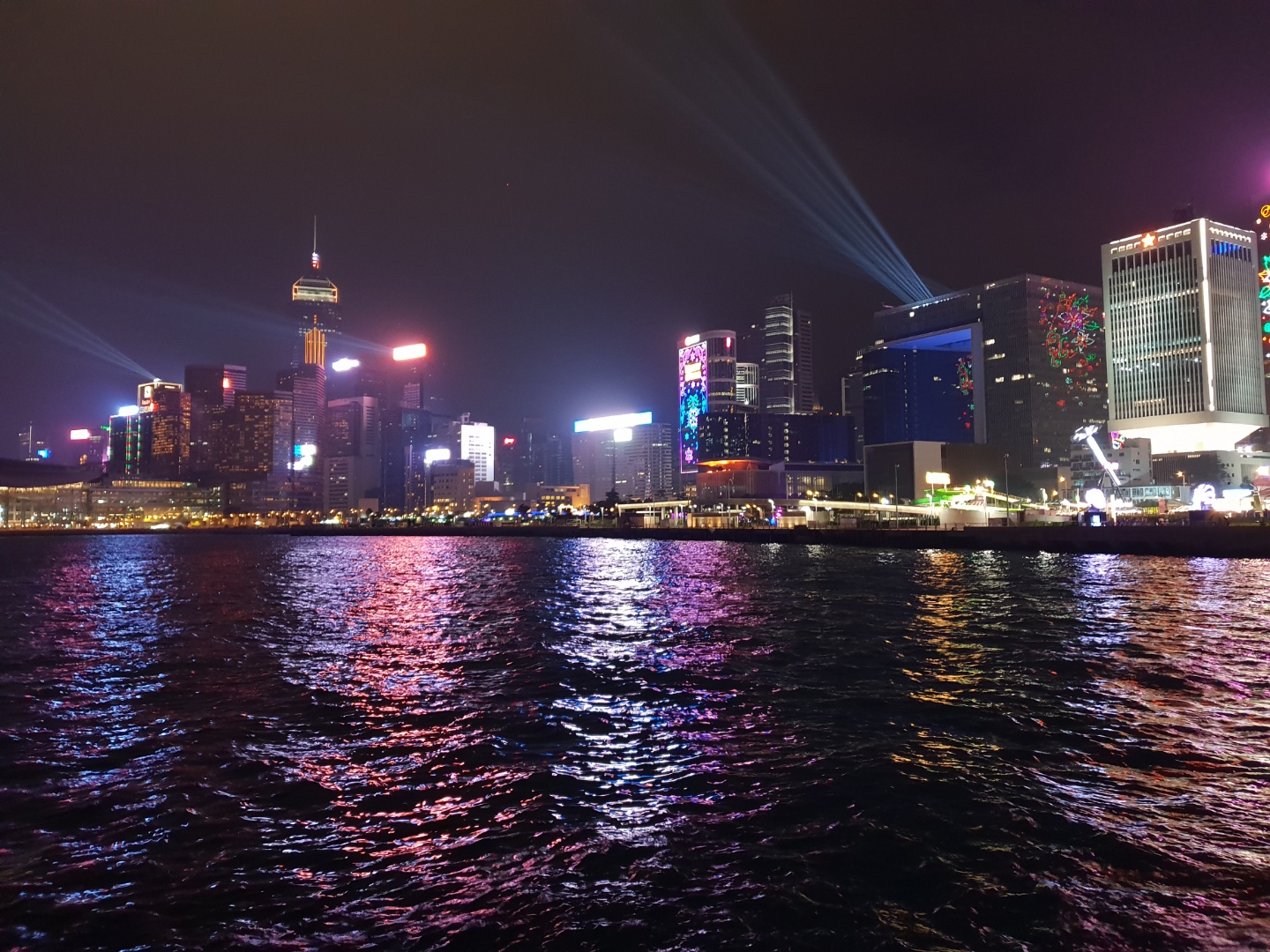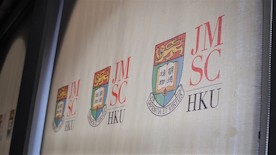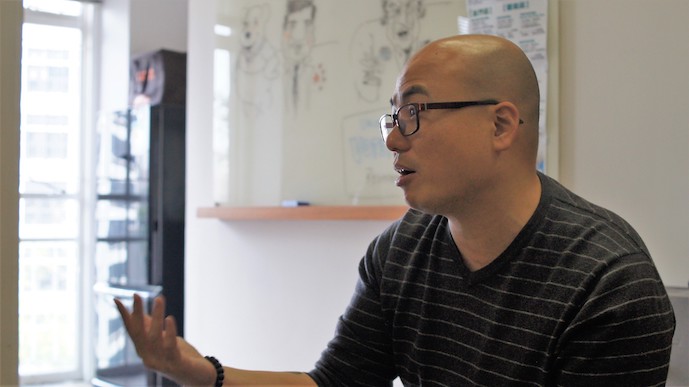
Preface: A Hub for Journalism
Despite how serious The KAIST Herald’s editors and reporters perceive our publication to be, the fact that we are amateurs in every sense of the word is an undeniable truth. Not only are the reporters of the Herald mere students struggling to balance a heavy workload with a commitment to journalism, but also are we not as diverse as we may hope to be. We are all members of a predominantly Korean institution in a predominantly Korean nation who joined the one club that prides itself on being more international than the rest; how different can we really be? Although we come from a variety of countries with vastly different cultural and socioeconomic backgrounds, the homogeneity of our commonalities inevitably prevails.
There’s a reason why a place like Hong Kong is home to branches of many of the most well-known news organizations around the world. Hong Kong as a region is famous for being a cultural amalgamation of the West and the East, so much so that it is frequently described as where “East meets West”. Even a cursory glance at its history reveals how it transformed from a group of fishing villages to the financial and cultural powerhouse it has now become; once a colony under the British Empire that benefited from rapid industrialization, Hong Kong is now a special administrative region that runs a “one country, two systems” policy under China. Created during the handover back to China in 1997, the policy promised that Hong Kong’s economic and political systems would remain untouched for 50 years. As a result, the dichotomy of Hong Kong’s melting pot lifestyle is embedded into the very fabric of its infrastructure and its societal inclinations. The silhouettes of the tall skyscrapers compose a jagged, manmade skyline, but individually each building is carefully constructed with feng shui in mind. Fast food restaurants are juxtaposed with neighboring establishments of a wide range of cuisines, a natural reflection of Hong Kong’s diversity. A few random turns in one of Hong Kong’s busiest shopping districts lead you straight to the entrance of a large Buddhist temple, the smell of burning incense blending in with the smell of freshly baked Portuguese-style egg tarts from a block away.
This cultural jumble gives Hong Kong a great edge when it comes to journalism. It inherently leads to the representation of different perspectives and a more open mind and tolerance towards cultural clashes and debates, things that The KAIST Herald can benefit from. The geopolitical significance of Hong Kong’s sovereignty is also a huge factor. As China continues to impose stricter restrictions on Hong Kong’s way of life, as it did in 2014 when a decision by the Chinese Communist Party triggered concerns of candidates for Hong Kong’s next chief executive being pre-screened and ultimately a series of protests known as the Umbrella Revolution, Hong Kong sits before a precipice of momentous changes to the geopolitical scene at large.

Knowing that the self-created limits on our reporters’ knowledge of multiculturalism and current events on the global scale may be holding us down, this summer, four Herald reporters sought to become better journalists by visiting Hong Kong to not only learn more about different cultures and broaden our horizons but also gain some insight into journalism from those who know it best: aspiring or professional journalists themselves. One of the places we visited was University of Hong Kong’s Journalism and Media Studies Center (JMSC), home to journalism majors and future professionals, as well as a large group of talented faculty members with an abundance of experience in the field. The JMSC has a rigorous curriculum to train potential journalists in not only journalism itself, but also media entrepreneurship with an emphasis on digital journalism, a modern take for a modern age. In fact, the JMSC was the first journalism department in the world to teach blogging. With an ambition to be the leader in everything that is new and innovative for journalism, the JMSC, its students, and its staff passed on their experiences and helped us understand the values and complexity of Hong Kong journalism.
Kevin Lau: A Beacon in the Storm
The KAIST Herald had the opportunity to meet and talk to a member of the JSMC’s outstanding staff. Kevin Lau is the development manager and career strategist in the center. Originally from Los Angeles, Lau moved to Hong Kong where he earned a master’s degree in Multimedia and Entertainment in Hong Kong Polytechnic University. As a media producer, he had a distinguished career producing for industry leading companies such as game company Ubisoft and television company DirecTV. At JMSC, Lau mentors and guides the careers of prospective journalists with his years of experience. Through the network he built during his career, he also coordinates internships and other opportunities to help further the careers of his students.

Topics pertaining to the current state of journalism around the world were the focus of the conversation. Especially in the last couple of years, fake news has become one of the most serious threats to journalism. As Lau mentioned, it is not simply the rise of less credible news media outlets but also how common it has become to discredit legitimate outlets by labeling them as “fake news”. He pointed out that, due to both of these issues, the overall trust of individuals in news reports is in a decline and this puts journalists’ jobs in jeopardy. The center believes that news literacy can help address this situation. News literacy is utilizing critical thinking to compare different pieces of information and determine what is credible regardless of the origins of the information. JMSC runs courses to help their students develop this critical thinking and it has also produced a public video series named “Strapline”, which aims to educate the general public on how to evaluate news sources.
One of the biggest stories of 2018 was the assassination of author and The Washington Post columnist Jamal Khashoggi. His death reminded the world of the real dangers that come hand in hand with the job of a journalist. When asked about his opinion about the safety of the job, Lau mentioned that it is rare for a journalist to be thrown into peril. However, many journalists do slowly move into trickier situations as they dive deeper into certain stories. Due to these concerns, journalists need to keep the utmost care of their privacy and their communication with sources. Lau added that big news outlets grant greater protection to their reporters. Due to the journalism industry cutting back, however, there has been a rise of freelancers. With no stable backing from an established organization, these freelancers expose themselves to greater risk. Lau expressed his concern about the current circumstances, especially when considering the somber outlook of the journalism industry.
Finally, Lau provided some advice to any future journalists. When asked how he distinguishes a good journalist from a great journalist, Lau provided one clear answer: obsession. He defined obsession as a “drive” and as an intense need to know more that keeps one awake at night. Being obsessed with a topic or a story, Lau argued, is crucial for any journalist. It is only through that obsession that one would go far and beyond, take the risks, and exert the effort to explore a topic in breadth and depth. The center considers this when accepting new students to their program. Candidates are asked in their interviews to talk about something they are obsessed about. By continuously prompting the interviewees with questions on their “obsession”, interviewers can see the level of the candidate’s obsession. If they are able to answer three or four questions, Lau considers them to be sufficiently obsessed.
The future of the journalism industry seems bleak. With the threat of fake news, possible security risks, and the lack of financial resources, there is no doubt that the job of journalists is becoming more challenging by the day. Despite this, Kevin was infectiously optimistic and enthusiastic. His passion drives him to continue toiling away in such a challenging and underappreciated industry. People like Kevin are the only thing stopping journalism from flatlining.

